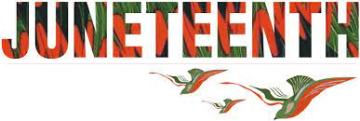
Illustration by: Aixa Perez-Prado
Celebrating Juneteenth
School is out for most students around the nation, which means that for many, learning about and celebrating Juneteenth won’t happen as organically as, say, Martin Luther King Day does. But for families and educators committed to embracing the fulness of our history and the holidays that mark it, we’ve put together some resources for teaching and talking about Juneteenth.

About Juneteenth Independence Day
Juneteenth just became a national holiday in 2021, but Black Texans have been celebrating it since 1866. The holiday gets its name from the day enslaved Texans learned of their freedom – June 19, 1865 – more than two months after the April 9 end of the Civil War freed all enslaved people. At first, the holiday was confined mostly to Texas. But as families moved to other states, they took their traditions with them, highlighting the day with picnics, music festivals, and family gatherings.
Today it remains a celebration not just of emancipation but of Black culture and tradition. Juneteenth is the first new federal holiday since Martin Luther King Day was recognized in 1983.

Reasons to Study Juneteenth
In addition to celebrating emancipation, Juneteenth is an opportunity for all Americans to learn about the twin legacies of slavery and segregation, as well as the construction of institutional racism. While the story of racism and bias in this country is painful, it is an intrinsic part of who we are as a country. We can empower future generations by teaching them the truth about where we started and urging them to do better than we did, to imagine a better future. We tell our children to make good choices when it comes to behavior, school, and morality, it seems reasonable that we could encourage them to make better choices to create a more diverse, inclusive, and equitable world.
Juneteenth Resources:
If you’re interested in guiding your middle-grade readers to learn what Juneteenth is all about and what the day symbolizes for our country, take a look at these booklists and lesson plans.
Booklists
Feminist Books for Kids (Blog)
Teaching for Change (multiple booklists arranged by category)
From the Mixed-Up Files …of Middle-Grade Authors
Lesson Plans
The National Museum of African-American History and Culture



